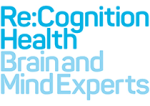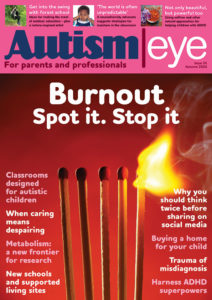By Ifigeneia Mourelatou, Autism Practitioner & ESDM Specialist at Re:Cognition Health
www.recognitionhealth.com
 About Ifi:
About Ifi:
Ifi has a BSc in Psychology and an MSc in Child and Adolescent Mental Health and specializes in early intervention & assessment of infants and toddlers presenting with ASD symptoms.
She has extensive experience in coaching, supervising, and supporting families of children with several different developmental difficulties and conditions. She is certified in interventions including Early Start Denver Model (ESDM), Paediatric Autism Communication Therapy (PACT), and several other assessment tools (ADOS-2, CARS-2 etc).
As professionals, we keep hearing parents expressing the challenges they are facing when they first notice that their infant or toddler might be missing developmental milestones or might have communicative or behavioural differences compared to other siblings or peers.
People who have studied early childhood development or neuroscience also know the huge impact of early detection and early intervention on development, behaviour, and brain level as opposed to starting intervention later in life.
However, there are common challenges of detecting autism early, which include:
1. Disagreements among family members
One of the main challenges that parents often face is the lack of agreement on the concerns and potential signs of autism, either between the couple or among other family members. For example, many parents with concerns say that grandparents or other relatives think that ‘everything is fine’, and ‘they are worrying over nothing’.
2. Confusion about which healthcare professionals are specialised in detecting early signs
Sometimes there is confusion as to which professionals are qualified to discuss the parents’ concerns and to evaluate further. This differs from country to country, but generally speaking, the first professional that concerns should be raised to is the general practitioner, the family’s paediatrician or the health visitor.
If the concerns are not heard and the family doesn’t receive a referral for an evaluation, then the family can address their concerns directly to a child psychiatrist or a developmental paediatrician, who are trained to assess children.
3. ‘Wait and See’ approach
Especially in the UK, we also hear a lot about the ‘wait and see’ approach from families and professionals. While this approach might be necessary when it comes to formulating a formal diagnosis, most clinicians agree that it might be too early to formulate a diagnosis before the child’s second birthday. However, a wait-and-see approach should never be followed when it comes to early intervention and boosting the child’s learning and development.
4. Autism is a developmental condition
Autism is a neuro-developmental condition, meaning that it first appears early in life and its core characteristics may continue throughout a person’s life. However, these characteristics and/or impairments will likely change with time. We might not be able to see the full picture from very early on and we may see subtle signs. Sometimes certain symptoms will emerge over time, thus making it more difficult to detect it early in some cases.
5. Complexity and grey zones
A final challenge is the complexity of its presentation in some cases. Some early signs and symptoms cannot be answered with a YES or a NO question. There might be a difference in frequency, appropriateness or quality of a skill, but not a complete lack of it, for example. Lots of parents say ‘but my child does look us in the eyes sometimes’, but, in fact, the frequency of that eye contact might not be what we would typically expect and differs from the eye contact behaviours of peers.
Furthermore, in some cases, the parents’ concerns could potentially be explained by a number of different conditions and diagnoses. For example, some early autism signs might be autism, but it could also be a language delay, a learning disability, a developmental delay, or another genetic or neurodevelopmental condition.
Apart from all the challenges, there are indeed major benefits in early detection and here are some of them:
1. Awareness and Education
The earlier you know, the more time you have to prepare, to read, to visit professionals, to discuss with other parents who have been in the same situation as you. More time to understand the difficulties the child might have and educate or even train the whole family.
The best approach is for all family members, including grandparents and other caregivers such as nannies, to be informed as soon as possible on how best to interact with and respond to the child’s communication.
2. Family Planning: the ‘Autism Journey’
With early detection, you escape the uncertainty and the thoughts of what this might be or what this might mean for your family. When you know your child’s specific strengths and needs, you can focus on supporting their growth.
Autism affects more than just the child; it affects the whole family. Many parents describe this as their “autism journey”, which is filled with emotions, ranging from confusion to frustration to sadness, but eventually reaching acceptance, filled with new options and plans.
3. Access to local funding & support groups
This largely depends on the region where the family lives, but it is worth investigating what help you can get and make an informed request to the council or the responsible organisation in your local area. This might include funding for intervention or support services, counselling for parents such as psychoeducation, or genetic counselling in some cases.
4. Early Intervention
A very important benefit of detecting autism early is the access to early intervention, namely individualized support to enhance growth and development and to minimise the associated symptoms as much as possible. It also helps boost skills that will support the child’s school readiness and academic achievement.
Parent training/coaching is now more accessible than ever before. Irrespective of where the family lives, it can be done remotely using platforms such as Zoom and Skype, or by video recording parent-child interactions. Health professionals, educators and families can now connect from different parts of the world and work collaboratively to promote the child’s learning.
Click here to see Re:Cognition Health’s directory page
Click here to visit Re:Cognition Health’s website



















